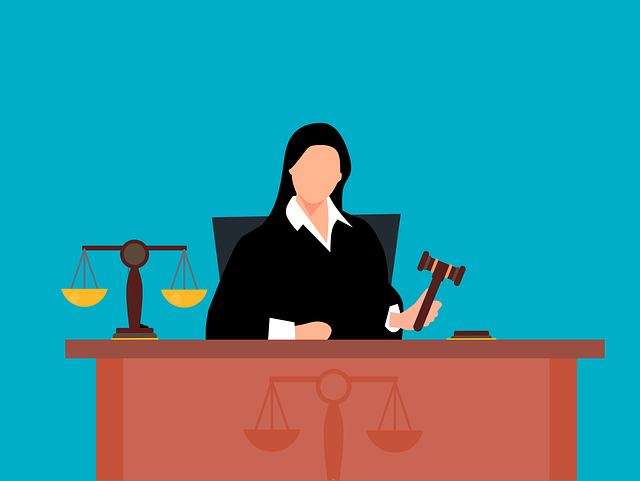In financial fraud detection, swift action after a contract breach is crucial. Key steps include securing records, identifying affected parties, preserving digital evidence, and notifying authorities while keeping clients informed. A systematic investigation involves gathering documentation, analyzing anomalies with forensics experts, and employing criminal defense strategies to ensure justice and prevent future incidents. Preventive measures like strengthening internal controls, enhancing data encryption, regular auditing, and fostering employee transparency are vital. Immediate action after a suspected breach includes documenting interactions, gathering evidence, and seeking legal guidance from specialists in financial fraud dispute resolution to avoid indictment and protect business relationships.
Financial fraud detection is a complex yet crucial aspect of modern business, especially with sophisticated schemes evolving rapidly. This article guides you through essential steps to take after discovering a contract breach, including understanding red flags and immediate actions. We explore root cause investigations, preventive measures to fortify against future breaches, and the legal implications that follow. By understanding these key components, businesses can navigate contract breaches effectively and protect their interests.
- Understanding Contract Breaches: Identifying Red Flags
- Immediate Actions After Discovering a Breach
- Investigating the Root Causes of Fraud
- Implementing Preventive Measures to Avoid Future Breaches
- Legal Implications and Dispute Resolution Steps
Understanding Contract Breaches: Identifying Red Flags
When it comes to financial fraud detection, understanding contract breaches is a critical step in identifying red flags that could indicate malicious activity. After a contract breach is suspected or confirmed, there are several crucial steps to take. Firstly, gather all relevant documentation and evidence pertaining to the agreement, including initial contracts, amendments, and any communication between parties. This foundational information is vital for navigating all stages of the investigative and enforcement process.
Next, assess the nature and extent of the breach. Look for discrepancies in financial records, unusual transactions, or activities that deviate from standard operating procedures. These anomalies could signal fraudulent behavior, warranting further investigation. Depending on the severity of the breach, it may be necessary to involve legal professionals who can facilitate a complete dismissal of all charges against corporate and individual clients alike, ensuring justice and maintaining trust in business relationships.
Immediate Actions After Discovering a Breach
Upon discovering a financial fraud breach, immediate action is crucial to mitigate damage and avoid further complications. The first step involves securing all relevant information related to the incident; this includes reviewing financial records, identifying affected parties, and preserving any digital evidence. Notifying the appropriate authorities, such as law enforcement or regulatory bodies, is essential, as they can provide guidance and support in investigating and prosecuting the fraudsters.
Additionally, it’s vital to inform corporate and individual clients who might be impacted. Transparency fosters trust and cooperation during this sensitive time. Communicate clearly about the breach, the steps taken so far, and what measures are being implemented to prevent similar incidents in the future. This proactive approach can help businesses maintain their reputation and protect themselves from potential indictment by demonstrating responsible management practices across the country.
Investigating the Root Causes of Fraud
After a contract breach, it’s crucial to take systematic steps to investigate and understand the root causes of any financial fraud that may have occurred. The initial phase involves gathering all relevant documents and records related to the agreement, including communication logs, financial transactions, and any digital footprints left by the parties involved. This comprehensive review helps in identifying discrepancies and potential red flags that could point towards fraudulent activities.
Once these primary pieces of evidence are secured, the next step is to analyze them with a keen eye for anomalies. This may involve cross-referencing data across multiple sources, checking for any unusual patterns or deviations from expected norms. It’s also important to consult with experts in digital forensics and financial analysis who can assist in uncovering hidden trends or manipulatives that might not be immediately apparent. The goal is to achieve extraordinary results in fraud detection by employing both conventional methods and innovative technologies to ensure justice and prevent similar incidents in the future, backed by solid general criminal defense strategies.
Implementing Preventive Measures to Avoid Future Breaches
Implementing robust preventive measures is paramount to avoid future financial fraud breaches. Following a contract breach, organisations should conduct a thorough review of their internal controls and security protocols. This involves identifying vulnerabilities in existing systems, enhancing data encryption methods, and regularly updating employee training programs on cybersecurity best practices. By taking these proactive steps, companies can significantly reduce the risk of repeated infringements.
The process should also include implementing strict access controls, regular auditing, and continuous monitoring of financial transactions. These measures ensure that any suspicious activities are promptly detected and reported. Additionally, fostering a culture of transparency and ethical conduct among employees can act as a powerful deterrent. Achieving extraordinary results in fraud prevention requires the collective effort of management, employees, and even philanthropic and political communities to establish stringent regulations and support systems.
Legal Implications and Dispute Resolution Steps
When financial fraud is suspected or confirmed, understanding the legal implications and dispute resolution steps becomes paramount. The first step to take after a contract breach or fraudulent activity involves documenting every interaction and transaction related to the incident. This includes collecting evidence such as emails, contracts, financial records, and any communication with the parties involved. Such documentation is crucial for both internal investigations and legal proceedings.
In cases of fraud, individuals or entities found liable can face severe consequences, including civil lawsuits and criminal charges. Achieving extraordinary results in dispute resolution often requires a strategic approach that involves consulting with legal experts specializing in financial fraud cases. The goal is to not only defend against the allegations but also to work towards a complete dismissal of all charges. Alternatively, if indictment is a possibility, navigating through these legal complexities can help mitigate potential damage and avoid formal criminal proceedings.
Detecting and preventing financial fraud is a multi-faceted process. By understanding contract breaches, identifying red flags, and taking immediate action, organizations can mitigate risks effectively. A thorough investigation of root causes, coupled with the implementation of preventive measures, is key to avoiding future breaches. Moreover, being aware of legal implications and dispute resolution steps ensures that all parties involved are protected. When followed as a structured framework, these steps to take after contract breach can significantly reduce financial losses and strengthen contractual relationships.






